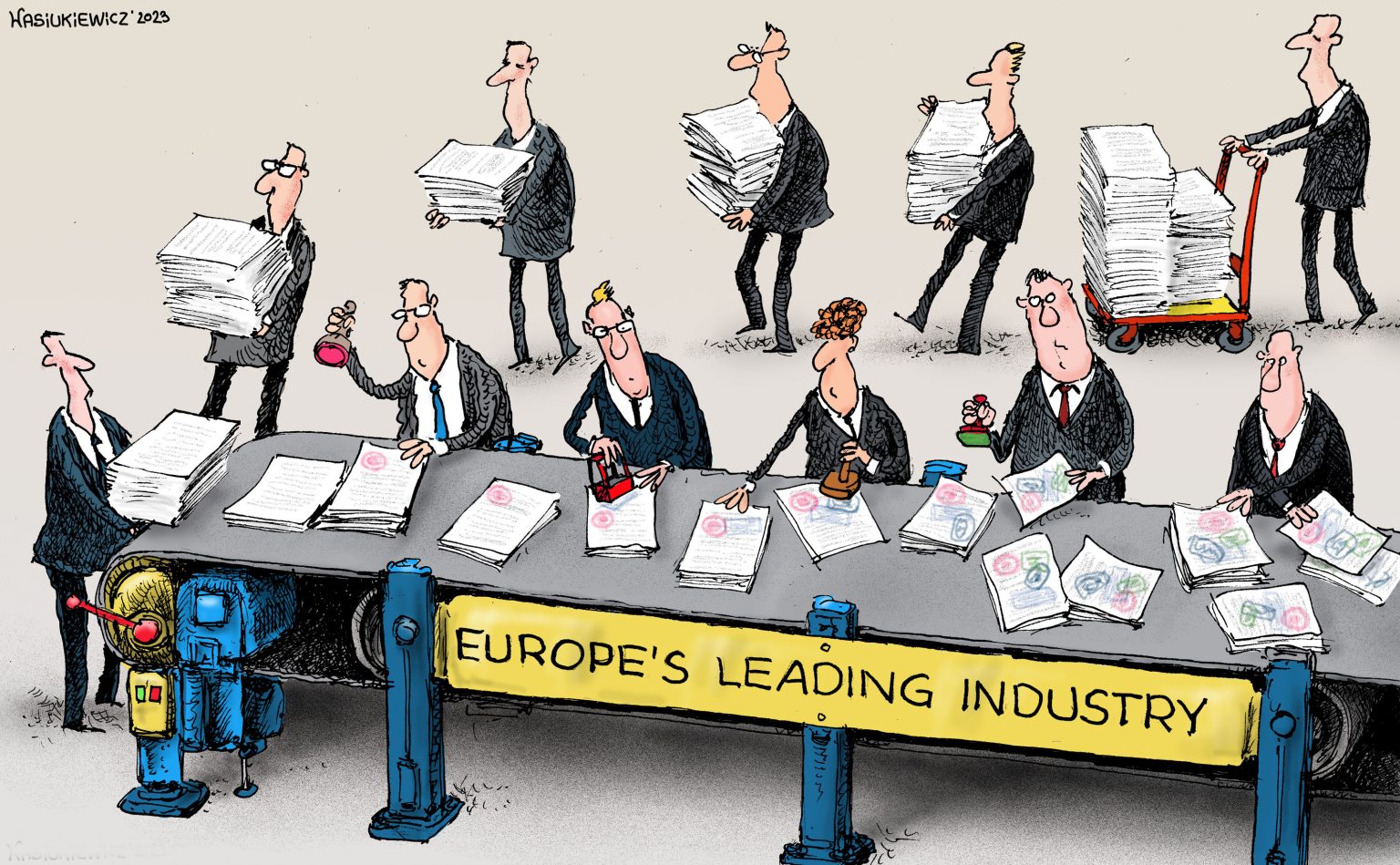SOURCE: PRINCE MICHAEL OF LIECHTENSTEIN via gisreportsonline.com
Europe’s economic engine is sputtering, and real growth rates are shrinking. With a few exceptions, this is the case all over the old continent. Europe has all the ingredients of success: a well-educated population, great scientific institutions and universities and a wide range of successful companies, especially owner-managed family businesses and hidden champions. Despite that, it is losing out in the global competition. The reasons are worth investigating.
A recent study published by four leading German economic research institutes highlights the problem areas. One is bureaucratic overregulation.
A representative review of German businesses (large, medium and small) revealed that most respondents see the increasingly tight regulatory environment as the leading threat to success and productivity. National authorities and supranational organizations are cranking out new rules and regulations at the speed of assembly lines. Vast documentation is demanded to prove compliance, which eats up company resources better spent on productive work in manufacturing and services, innovation and market competition. On top of these unproductive compliance costs come frequent audits, further limiting entrepreneurial freedom.
Monster reporting system
Consider just this one example: The European Sustainability Reporting Standard (ESRS) is a colossal document counting 400 pages. It contains very detailed requirements for corporate reporting on a range of social, environmental and governance issues, updating and strengthening the earlier Non-Financial Reporting Directive. The ESRS went into effect in January 2023, and now the member states have 18 months to integrate the new rules into their national law. The first submissions are due in 2025 from larger companies with more than 1,000 employees and the businesses active in the areas ESRS considers sustainability risk, such as timber, textiles or mining. After 2026, all businesses with staff over 250 persons will have to comply – estimated 50,000 companies in Europe.
All the above creates a nightmare for businesses. It will multiply the unproductive work in national administrations, business and auditing sectors.
The reporting system is based on 1,444 data points throughout the supply chain. Besides defining environmental, human rights and labor standards, it also includes fuzzy issues, such as “work-life balance.” The reports will have to go to the Directorate General for Financial Stability, Financial Services and Capital Markets Union, one of 33 functional departments of the EU Commission. But it gets weirder.
Overlapping laws
In February 2022, the Directorate-General for Justice and Consumers put together the so-called “supply chain directive” that will come into force later this year. That directive concerns illegal actions of suppliers against environmental rules and human rights; it overlaps the ESRS, doubling the reporting burden for companies. Then, the Directorate-General for Internal Market, Industry, Entrepreneurship and SMEs plans its own directive in the same areas, most probably not very different from these others. And then comes the EU taxonomy from the financial stability directorate, which prescribes whether enterprises are acting ecologically.
All the above creates a nightmare for businesses. Every activity, business practice and governance rule will have to be documented in a way that it can be audited. It will multiply the unproductive work in national administrations, business and auditing sectors.
Weak rationale
The reasoning underlying this straitjacket is that investors will read the reports and channel the investments in an ethical and ecological way. That is an illusion. This sort of Soviet-style central planning, ironically called “market” reforms by EU bureaucrats, produces only waste: of money, labor and material. It will create market bubbles on one side and investment gaps on the other. The German national daily newspaper Die Welt, which reports on the issue, quotes Steffen Kampeter, the CEO of the Confederation of German Employers: “businesses need labor for innovation and creation of value, not for bureaucracy.”
Rules are certainly needed. However, overregulation and unnecessary reporting obligations should be avoided. There will always be some debatable business practices in the real world, but such measures will not stop those. We need to return to trust-based systems whenever it is possible.
